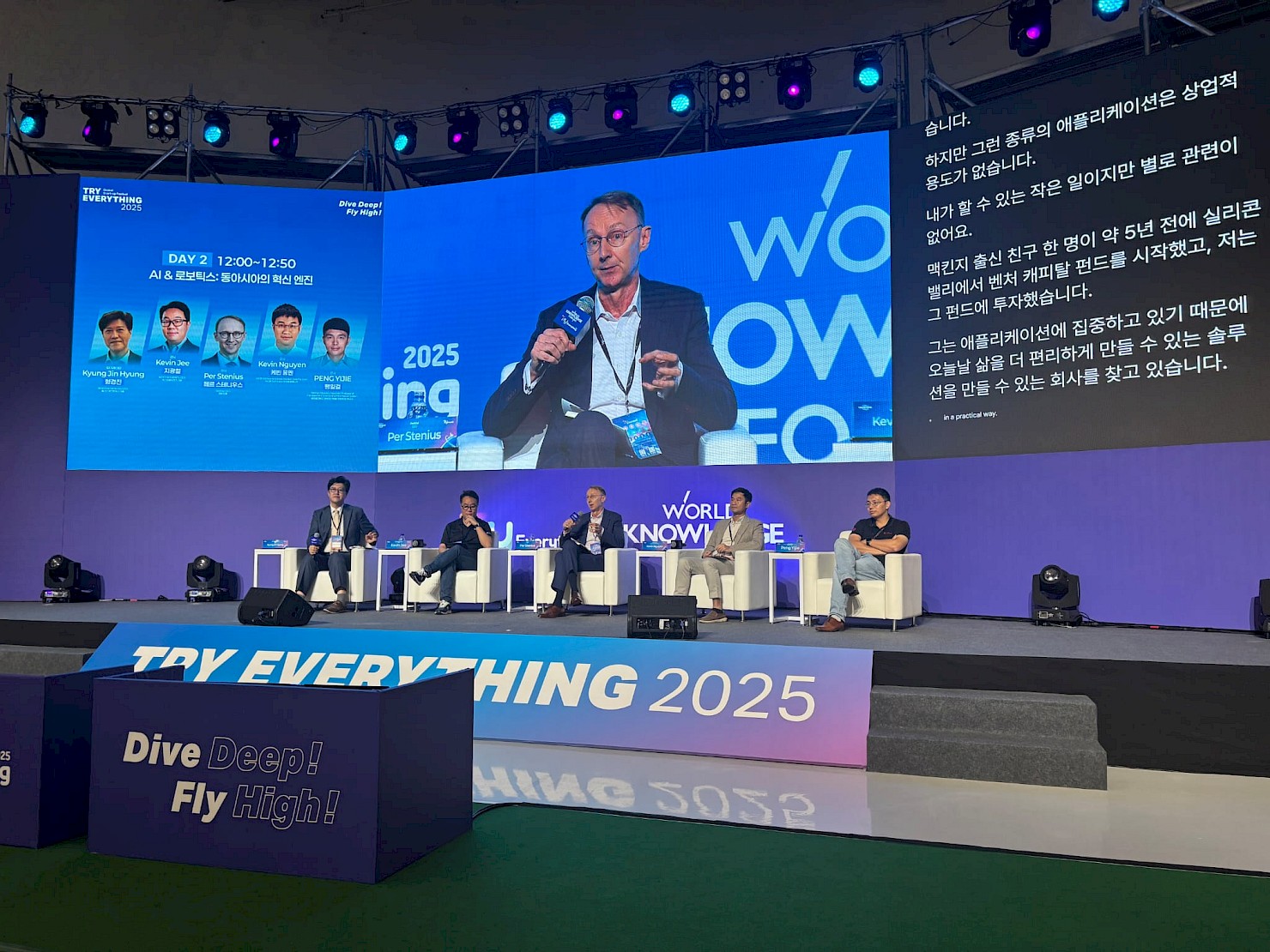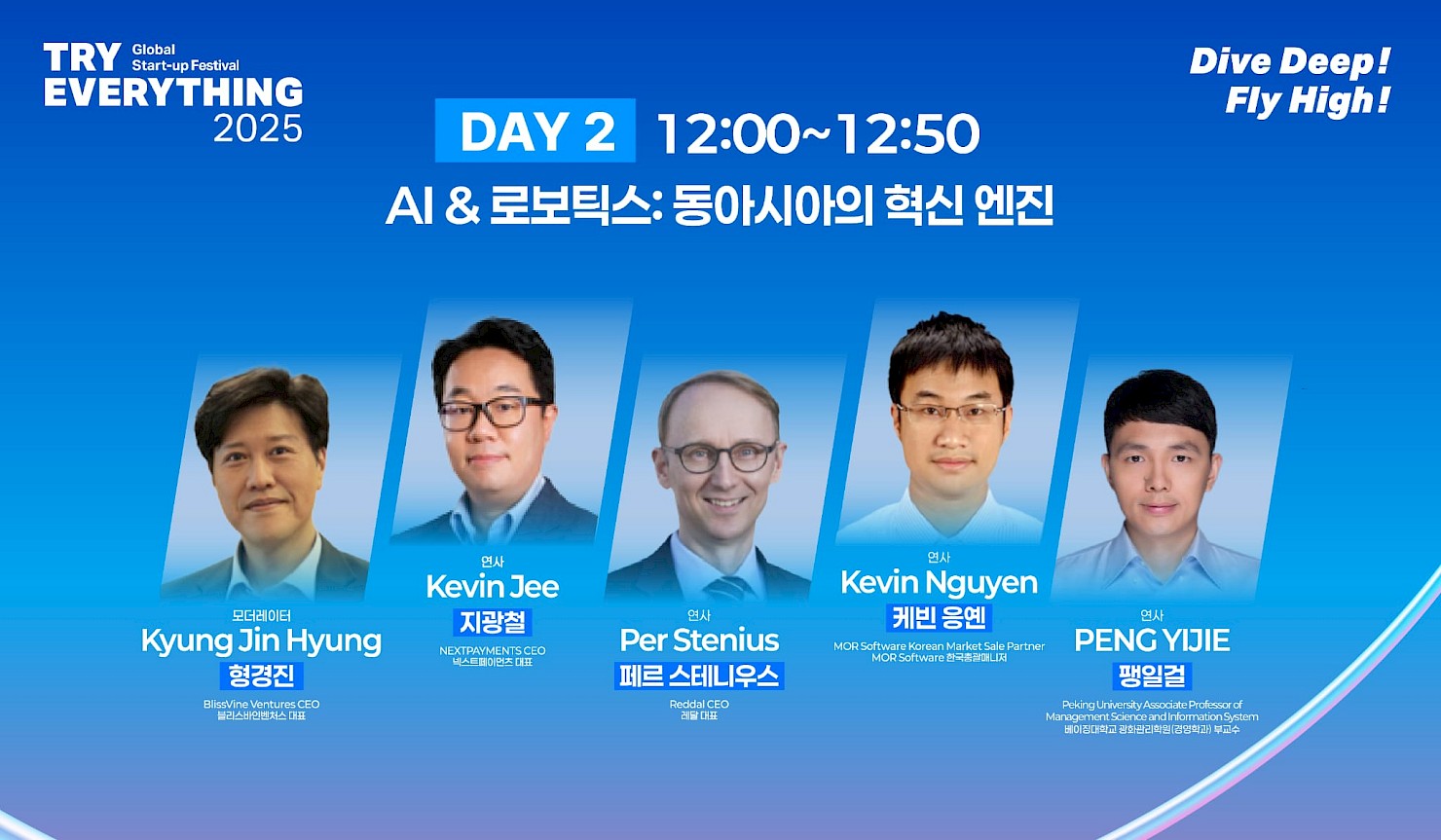AI and Robotics in East Asia: Pathways to global competitiveness
19 September 2025 — In an interview with The Digital Times, Per Stenius, CEO and Client Director at Reddal, discussed how South Korea can advance its AI and robotics ecosystem to boost global competitiveness.

Download this post (PDF)
On September 12, 2025, Per Stenius, CEO and Client Director at Reddal, spoke with The Digital Times on South Korea’s AI and robotics ecosystem. In the interview, he emphasized that the sector must reinforce both its research foundation and commercial applications to establish a distinct global identity and build world-leading AI companies.
On the research side, universities and research centers need to remain active but also collaborate across borders, ensuring that breakthroughs are not isolated but connected. Yet innovation alone is not enough – it must be tied to the marketplace through global venture capital that can scale ideas into real impact.
At the same time, companies should experiment with AI broadly, even without large-scale investments, as practical applications can deliver significant benefits and accelerate learning. At the same time, the public sector has an important role to play by enabling experimentation through regulation, reinforcing IP and data protection, and investing consistently in education to build long-term competitiveness.

Collaboration across governments, corporates, universities, and startups is often mentioned as a success factor, but in practice, the missing link lies in mindset and scope. In Korea especially, the ecosystem remains too domestically focused, limiting talent, funding, and partnerships to national boundaries rather than embracing a global outlook. In Europe, for example, companies like IQM are seen as European rather than Finnish, which has helped them attract significant global funding.
Balancing the role of startups and chaebols is equally important, as large corporations naturally seek to protect their own positions, sometimes at the expense of emerging players. A stronger partnership between universities, startups, and investors, supported by government agencies but not steered by politics, has worked well in ecosystems like Finland. Ultimately, success depends on opening up, thinking globally, and adopting a mindset that welcomes collaboration.
The full article is available in Korean at “K-AI 3강, 민간주도·글로벌 자본 없인 한계”… 글로벌 컨설팅 CEO의 조언 | 디지털타임스
***
The Digital Times later published another piece on September 14, 2025, highlighting Korea’s ambition to rank among the world’s top three in AI by 2030, where Per’s perspectives on the topic were mentioned. Extracts of his quotes can be viewed as follows:
“AI today is driven by access to massive data, where the U.S. and China hold a clear edge. For smaller countries like Korea, the opportunity lies in applied technologies. Korea can carve out global leadership in semiconductors, industrial AI, drones, defense, and EVs. These are the areas where commercial success and technological strength go hand in hand.”
The full article is available in Korean at [단독] 삼성 ‘로봇’·현대차 ‘자율주행’… 대기업 콕 찍어 AI 키운다 | 디지털타임스
***
On September 12, 2025, Per Stenius also joined a panel on “AI & Robotics: The Innovation Engine of East Asia” at Try Everything 2025, a global start-up festival in Seoul, South Korea. During the discussion, he re-emphasized some of the key points above on strengthening Korea’s position in the global AI and robotics market.


Tags
South Korea, South Korean market, Korean economy, Deep tech, Artificial intelligence, Robotics, Growth strategy








